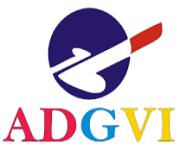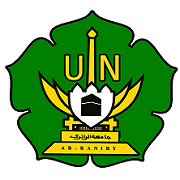Model Blended learning Berbasis Google Classroom Pada Kompetensi Dasar Listrik dan Elektronika (DLE) Terhadap Hasil Belajar
Abstract
Government obliged the schools should held the online learning in terms of Covid 19 spreadness. However, the online learning process indicated less effective result. To overcome this problem, a blended learning model is applied. The blended learning model combines online learning with face-to-face (offline) learning. The purpose of this study was to determine the response and influence of the blended learning model with google classroom. The method used in this study is an applied research method by using one group pretest posttest design. The study involved students of class X TEI SMKN 1 Simpang Kanan, SIngkil, Aceh. The instrument used wa test questions and questionnaires. Data analyze by looking at the difference in the average score of students at the pretest and posttest result. The data showed that the blended learning model with google classroom had a positive effect on student learning outcomes. It proved from the results of hypothesis testing by using the paired sample test at = 0.05, the sig value is obtained. (2 tailed) of 0.046.It could concluded that Ha is accepted. The data also presented that there were differences in the learning outcomes of class X TEI before and after the implementation. This can be seen from the average score of students at the time of the pretest was 57.11 and the average value of the students at the time of the posttest was 65.88. Meanwhile, the students' response to the blended learning model with the help of Google Classroom is 80.8%. It can be concluded that the Belnded Learning model assisted by Google Classroom is quite effective to be applied to distance learning (online).
Keywords
Full Text:
PDFReferences
Bibi, Sarah & Jati, Handaru. (2015). Efektivitas Model Blended learning Terhadap Motivasi Dan Tingkat Pemahaman Mahasiswa Mata Kuliah Algoritma Dan Pemrograman. GRAVITASI, Jurnal Pendidikan Fisika Dan Sains, 5(1), 74-87
Diemas, Bagas, & Panca Pradana. (2017). Pengaruh Penerapan Tools Google Classroom Pada Model Pembelajaran Project Basic Learning Terhadap Hasil Belajar Siswa.” Jurnal IT-Edu. 2(1), 59-67
Fitriani, Nurin. (2017). Penerapan Model Pembelajaran Blended learning Pada Mata Kuliah Pemisahan Kimia Materi Kromatografi Untuk Meningkat Kualitas Belajar. Erudio (Journal of Educational Innovation 4(1), 46-54
Indriaty & Setyoko. (2018). Implementasi Pembelajaran Blended Learning Berbasis Media Google Classroom Terhadap Hasil Belajar Mahasiswa Pendidikan Fisika. JPFS, Jurnal Pendidikan Fisika dan Sains, 191), 5-10
Kurniati, Melya., Santanapurba, Harja & Kusumawati, Eli. (2019). Penerapan Blended learning Menggunakan Model Flipped Classroom Bebantuan Google Classroom Dalam Pembelajaran Matematika SMP. Jurnal Pendidkan Matematika. 7(1), 8-19.
Sewang, Anwar. (2017). Keberterimaan Google Classroom Sebagai Alternatif Peningkatan Mutu Di IAI DDI Polewali Mandar. Jurnal Pendidikan Islam: Pendekatan Interdisipliner. 2(1), 35-46
Soeryanto, warju, Nurtanto, M. Ariyanto, S.R., (2021). The use of Google Clasroom in improving Learning Achievement on Apprenticeship Program in Vocational Schools. Interciencia Journal, 46(2), 221-231
Yulia, Dwi Sandra Fera & Sapto, Ari. (2019). Pengaruh Metode Pembelajaran SQ3R Terhadap Hasil Belajar Bahasa Indonesia.AI Pendidikan: Teori, Penelitian dan Pengembangan, 4(6), 806-814
DOI: http://dx.doi.org/10.22373/crc.v6i1.11120
Refbacks
- There are currently no refbacks.
Copyright (c) 2022 Malahayati, Mursyidin, Umrah Hayani, Radhiah

This work is licensed under a Creative Commons Attribution-ShareAlike 4.0 International License.
Circuit: Jurnal Ilmiah Pendidikan Teknik Elektro
P-ISSN 2549-3698
E-ISSN 2549-3701
Published by Electrical and Engineering Education Department, Education and Teacher Training Faculty, Universitas Islam Negeri Ar-Raniry Banda Aceh, Indonesia
Email: jurnal.circuit@ar-raniry.ac.id

Creative Commons License
Circuit: Jurnal Ilmiah Pendidikan Teknik Elektro is licensed under a Creative Commons Attribution-ShareAlike 4.0 International License.
























